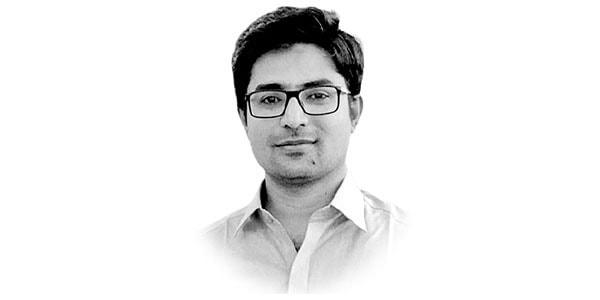UN: A failure?
THE purpose is not to write the death certificate of the UN but an attempt to delineate the failures of world’s largest multilateral organization.
The catastrophic global wars of the 20th Century took a great toll of life with profound social, economic and political implications.
To prevent the toll posterity from the ‘scourge of war’, the gang of five midwifes the birth of the UN, but congenital anomalies have atrophied all its organs.
Thus, it has failed to grow and function properly.The structural defects of the UN have provided room to big powers to advance their interest at the expense of the organization’s primary objective.
It has failed to prevent conflicts; peace and security have become a far cry.The flames of conflict have never extinguished while only the means and patterns of war have changed.
Given that the UN has made the lawless jungle a sort of zoo to cage the big beasts and neutralize their aggressive behaviour in an anarchic international system, this objective has remained a pipe dream.
However, during the creation of the UN, the five permanent members of the Security Council were victorious powers with convergent interests, creating an institutional world order was aimed to protect their future interests and to prevent wars.
When the interests of veto powers started to diverge over the future course of world economic and political structure, the UN landed in troubled waters.
Great powers have never compromised their interests—while breaching fragrantly the UN’s principles to preserve their strategic interests.
The permanent members of the UNSC always tend to use their veto power to curb any resolution which may undermine their interests or that of their allies.
In this way, power politics continues to strangulate the UN.Of all optimisms, the UN is always admired to have prevented the World War III.
It may be true to admit that the UN has contributed to several peacekeeping missions and has also extended help in conflict resolution, but it must not be given the credit for preventing the World War III.
It has been the nuclear deterrence which has repelled big power from direct collision thus far.
Nuclear weapons have created the fear of mutual destruction; therefore, nuclear countries rationally avoid war.
In other words, the concept of mutually assured destruction (MAD) has discouraged them to engage in war, for it will bring about complete annihilation with no victorious power.
But the major global powers have remained in entanglement through proxy warfare in other countries.
However, on the pretext of humanitarian intervention or self-defence in the face of a perceived threat, great powers are often inclined to military intervention in other countries with the view to ‘preventing’ or ‘pre-empting’ the imminent threat to their national security.
Pre-emptive self-defence has resulted in the violation of sovereignty and human rights abuse.
The US invasion of Iraq in 2003 is a textbook example of sovereignty violation.Similarly, the ongoing Russia’s military invasion in Ukraine signifies the tragedy of great power politics.
Evidently, the UN is impotent, for it has failed to prevent great power aggression.Any resolution against their actions will be vetoed without any impediment.
Hence, the UN serves no purpose during great power conflict, and the vulnerable countries are subjugated without any substantial help or collective security.
Today, the world is in disarray.Virulent nationalism, retreat of globalism, great power tension, unilateralism in action, little respect for global norms, global security landscape and the twilight of American exceptionalism are some aspects of the world in transition.
The UN is unbale to stem the rising tides of these evolving dynamics of the world.Even though the UN has cheated death despite global crises in the past, changing priorities and interests of permanent members of the UNSC will invent its painful death.
These permanent members—particularly China, Russia and the US—are on a collision course, having divergent interests over a myriad of global issues.Drifting great power interests would be an agony of death for the UN.
Although the US has been a ruthless master, its rise as global hegemonic power has provided the UN a lease of life.
The US has covered the world with the blanket of its security to work as global policeman; its economic supremacy has allowed it to influence world economy and attract alliance; its technological superiority has added another dimension to its power; and, its ideological principles—multilateralism, neo-liberal economic system and democratic political norms—have provided it with the paraphernalia to craft the rules of the game.
Briefly, the UN has been under the protection of a hegemonic power; its principles have been upheld by the virtue of the US exceptionalism.
An evolving multipolar world order will be a litmus test for the UN.Multiple major powers in the international system will increase unilateralism, so multilateralism will be at stake.
Nevertheless, war, climate change and pandemics are the major global problems for the UN.But great power relations will decide the future of the UN.
—The writer is a strategic affairs and foreign policy analyst.










